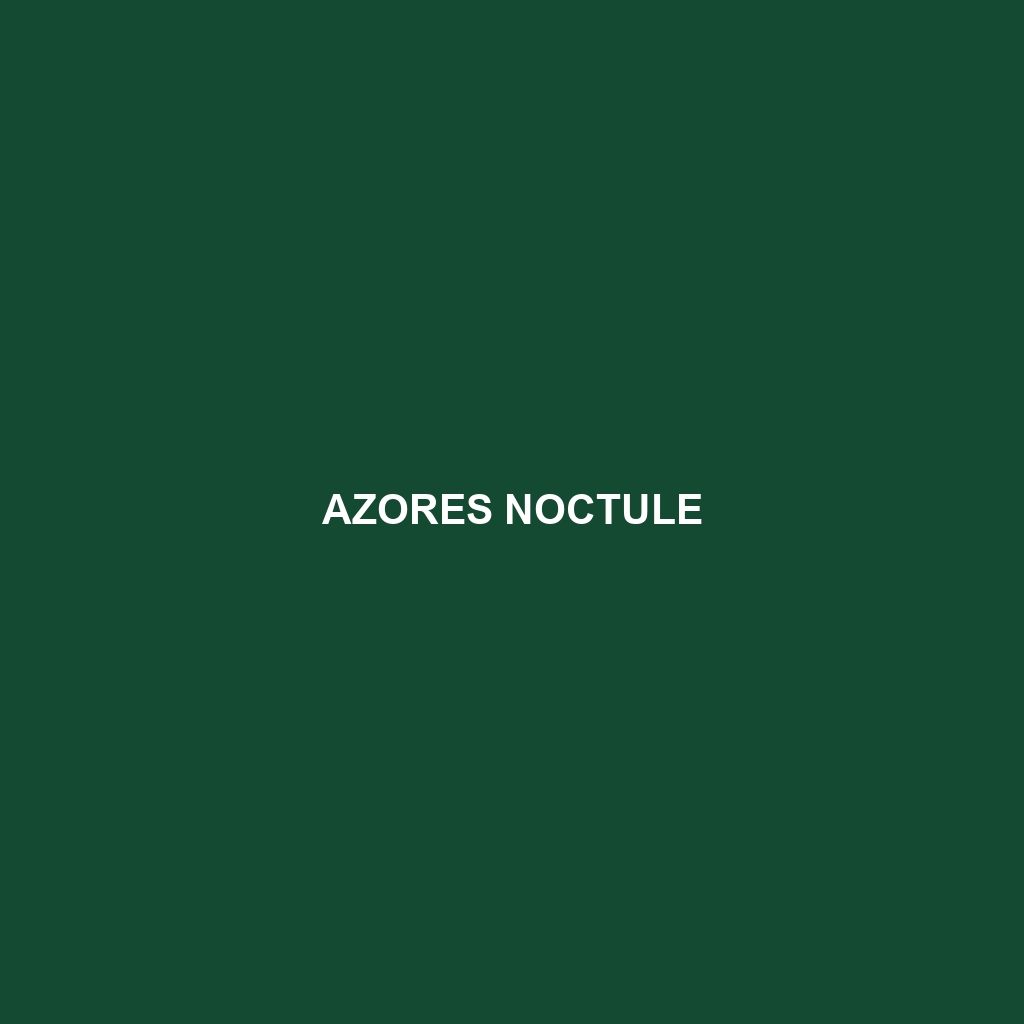Azores Noctule (Common Name)
Scientific Name: Nyctalus azoreensis
Habitat
The Azores Noctule is primarily found in the Azores archipelago, situated in the North Atlantic Ocean, off the coast of Portugal. This species thrives in a variety of habitats, including temperate forests, mountainous regions, and agricultural landscapes. They prefer areas with abundant tree cover and are often located near water bodies where they can hunt for insects.
Physical Characteristics
Adult Azores Noctules are medium-sized bats, typically measuring between 10 to 12 centimeters in body length with a wingspan ranging from 28 to 30 centimeters. Their fur is short and dense, usually varying in color from dark brown to a lighter tan on the underside. Characteristic features include long, narrow wings and a distinctive, pointed snout which aids in their echolocation abilities.
Behavior
Azores Noctules are nocturnal creatures, displaying unique flight patterns as they forage for insects during dusk and dawn. They are known for their agility in the air, allowing them to perform sharp turns and dips to catch prey. Socially, they tend to roost in small colonies in tree hollows or under loose bark, which provides them shelter and protection from predators.
Diet
The diet of the Azores Noctule primarily consists of a variety of insects, such as moths, beetles, and flies. They employ echolocation to locate and capture their prey mid-air. This bat species contributes to natural pest control within its habitat, showcasing the vital role it plays in maintaining ecological balance.
Reproduction
Breeding typically occurs in late spring, with females giving birth to one or two pups in late summer. The young are born hairless and blind, relying on their mother’s milk for nourishment. As they mature, the pups learn to fly and hunt alongside their mothers, developing vital survival skills before they become independent.
Conservation Status
The Azores Noctule is currently classified as vulnerable due to habitat loss and declining insect populations linked to agricultural practices and urban development. Conservation efforts are essential to protect this unique bat species and its natural environment.
Interesting Facts
One fascinating fact about the Azores Noctule is its ability to adapt to various habitats within the Azores, making it a resilient species. Additionally, their echolocation skills are among the most sophisticated in the animal kingdom, allowing them to detect prey even in complete darkness.
Role in Ecosystem
As a key predator of insects, the Azores Noctule plays a crucial role in controlling insect populations within its ecosystem. By maintaining this balance, they contribute to the overall health of their habitats, benefiting both flora and fauna. Their presence signifies a healthy ecosystem, signifying the interconnectedness of species.
